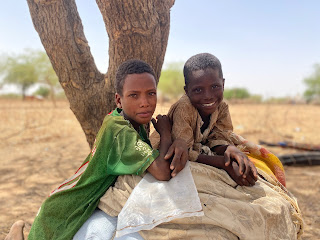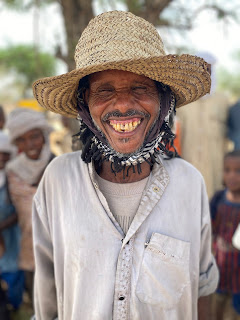It’s been a while since I’ve written. If I hadn’t written that last post about breaking my arm, I could have used that excuse, but I think traveling and life has kept me too busy. Also when I’m traveling, I’m staying in hotels with good wifi so I can use Marian’s netflix account and mess up her algorithm by watching reality tv shows about people on boats and documentaries about crime people getting caught and once even a serious show about a woman escaping her emotionally abusive partner and trying to navigate complicated and inadequate social services because she has no one else she can lean on, which made me glad that I have people all over the world that I can lean on. And speaking of the world...

This is how seriously I take my job*
I’m currently in Pakistan visiting some partners we are hoping to work with to bring clean water to some vulnerable people here. I’m excited that I got to make this trip because technically I’m the Africa Programs Director and Pakistan, I hope you know, is in Asia. It’s a good chance for me to pull out my rusty Hindi and visit my first ‘Stan (though I’ve plans for a few more hopefully in 2022!!) and of course I mostly came for the food. Just say yes to curry. Always. And throw some more chilis in there too.
 |
| We stopped by the Indus River on a busy highway because I've long been interested in it since learning about the Indus Valley Civilization in Hrappa as a kid. |
 |
| Eating a local hot chili as everyone around me says it will kill me. It did not. It was not even the hottest one I've eaten, so I think I got a dud. |
I don’t mind helping when I’m traveling. The places where I travel in the increasingly inter-connected world where we live often have people walking around with confused expressions on their faces, and speaking a few languages as I do, I can overhear conversations, and I am not too timid (and not good enough at minding my own business) to jump in and help. At the NDJ airport last, I heard the posh clipped tones of a fancy Brit who’d spent a brief amount of time at the new British embassy and the UNDP and was wondering which gate she should be waiting at in the airport. I helpfully informed her that though technically it does say that there are two gates, only one is ever open at a time and you are hustled out the gate to the waiting bus through various bag checks (though your bag has already gone through an electric scanner twice by this point), and been frisked (though you’ve already been frisked and been through an electric scanner once by this point), and had your passport and ticket checked anywhere between 4-6 times (though they’ve also already been checked by 4-6 people previously). After waiting on the bus, now festooned with signs calling for social distancing and covid prevention, for a varying amount of time as they stuff it full of people wearing facemarks under their chins, possibly with the AC on, more likely without it, you’re then driven about 50 meters to the only plane waiting on the tarmac. When the doors of the bus open, you’re caught in the current of the crowd, swept up the stairs, tripping on robes and smacked in the ankles by roll-y bags, before making it on your flight. It’s really impossible to get on the wrong flight or be at the wrong gate.
 |
| Taking notes, apparently about something funny. I think Sunil is probably making a joke. |
Once on the plane, you may have to negotiate for the seat written on your ticket. This is where I start offering my services to flight attendants, speaking French or Arabic to help those around me find their seats, get a blanket, order the chicken. The Ethiopian flight attendants are always really grateful, but they’ve not yet been grateful enough to share injera and tibs with me at dinner time. Leif says he once charmed them into a plate full of shiro and tibs. I’ve tried but I don’t think I have his Swedish charm.
 |
| Cannon pose with Nadeem on Umerkot Fort |
Once in Addis Ababa International Airport, also festooned with covid prevention signs, I obediently sat at the end of an empty bench that was quickly filled up with a group of other ladies. I made small talk with a lady from Niger, commenting on her croix d’Agadez earrings and assuring her that we had plenty of time before we needed to get in line to board. While I was in line boarding, I overheard a young man who was trying to figure out why he was pulled out of the line. He asked some other francophone Africans and they all said, “I don’t know, man. I can’t speak English.” So I offered to help, and I got things sorted for him. When he got on the plane and walked past where I was sitting, he smiled and thanked me again. In the plane I Arabicked some men into understanding that they were in my seat and their seat number changes on each boarding pass so even though they were in 26ABC on their first flight, now they were in 43DEF. In Dubai I then helped a Burkinabé guy on his way to Glasgow where his very limited English will likely be quite useless to him and finally made my way to the fancy airport lounge that I just found out I can access for free due to my insurance. I’m not gonna lie, as a generally healthy person, this is the most I have ever gotten any money’s worth out of an insurance plan. Plus there is no way I could have convinced myself to spend $800 on a hotel room. Apparently sometimes they have $300 rooms available, but I wouldn’t pay that either. So I skipped sleeping in a bed and dedicated myself to the consumption of lounge food and beverages (free!) and wifi and reading documents I should have read last week but didn’t.
 |
| Signing the visitor's book in the village with the beautiful Sonia |
When I finally got to Pakistan, in spite of being stopped at boarding because my ticket said my point of origin was Ethiopia, which is on the no go list for Pakistan (I convinced them I originated from Chad using boarding passes and the Pakistan travel health app), some nice English-speakers made sure that I knew where to go to get a rapid PCR test, required on arrival, and then got my boarding pass stamped before getting the results back because the stamp was the important part. At immigration I was helped through by a Pakistani American guy and later a Pakistani Brit chatted with me as I waited for my suitcase. Karma! Or it would be if I were going to India, but I was told while in Pakistan not to talk too much about being in India. I’ve found that to be mostly impossible, but I have tried not to be too loud about it.
 |
| Walking down from the top of Umerkot Fort. |
In the meantime, I’m enjoying being back in Asia, having food made with multiple spices, all of which I love, buying brightly colored clothes with Kehkshan so I could be culturally appropriate, visiting museums with scary-looking mannequins dressed in beautiful traditional clothes beside plaques detailing classical tragic love stories from across the country, the incredible generosity of people I’ve only just met showering me with gifts and kindness and chai.
 |
| Taking a video of my fav kid Dilip who was too cute |
 |
| This photo makes me feel like we are walking towards the camera, getting ready to burst into song and dance like we are in a Bollywood film. |
*All photos taken during the Pakistan Trip, after I started writing this blog, before I finished it. Blogs without pictures are boring.


















































